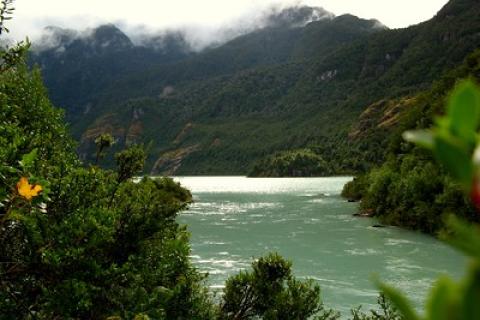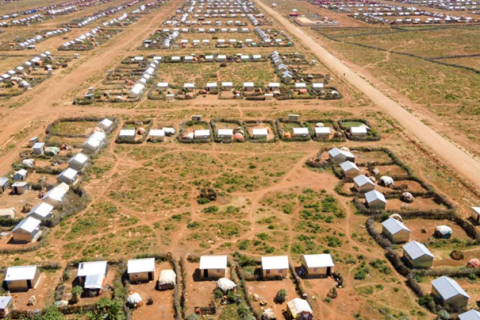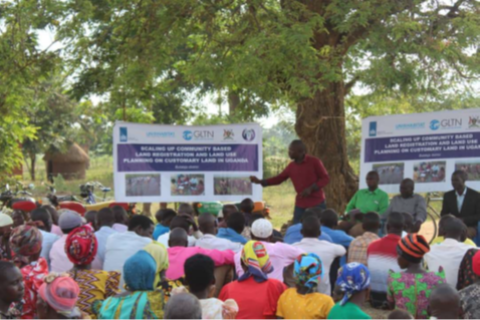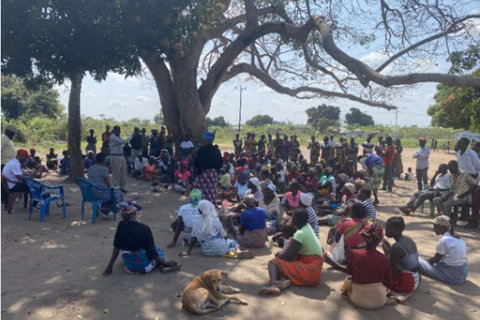Cerrar la brecha: capacitar a las comunidades indígenas mediante la financiación directa para el clima
El lado oculto del paraíso: Pérdidas y daños en el cinturón agrícola de Jamaica
En la comunidad rural agrícola de Belmont, Jamaica, enclavada en la parroquia sureña de Santa Isabel, las secuelas del huracán Beryl son un crudo recordatorio del implacable poder de la naturaleza.
Apoyo a las comunidades para defender el clima, la biodiversidad y a sí mismas
El pasado 14 de julio, se encontró el cuerpo de Mariano Isacama Feliciano a orillas del río Yurac, un afluente del Amazonas en el departamento peruano de Ucayali. Él era defensor de derechos humanos del Pueblo Indígena Kakataibo y antes de su muerte había estado trabajando con su comunidad para oponer resistencia a la presencia de madereros ilegales.
La curación de la isla chilena de Huapi. Cómo los Pueblos Indígenas restauran los bosques autóctonos para aumentar la resiliencia climática
En la isla chilena de Huapi, los bosques autóctonos se habían fragmentado, empobreciendo y secando los suelos y dejando a su población vulnerable a los efectos del cambio climático
Los Derechos de un Río: Las Mujeres Indígenas Kukama Lideran el Camino con una Victoria Legal Histórica
Defender los derechos de la naturaleza representa un gran paso adelante en la lucha contra el cambio climático.
Scaling Community Land Rights Certification in Municipal Areas of Mozambique: the launch of a new LAND-at-scale project
Terra Firma and the Netherlands Enterprise Agency (RVO) are pleased to announce the launch of a new LAND-at-scale project: Scaling Community Land Rights Certification in Municipal Areas of Mozambique. The project started implementation this month (February 2024) in the rural hinterlands of four municipalities in Manica, Sofala and Zambezia provinces.
Reflection on LAND-at-scale side-event at CLPA 2023: Climate-Resilient Land Use Planning as a Tool for Addressing Land Degradation
During the Conference for Land Policy in Africa (CLPA) which took place in Addis Ababa in November 2023, LAND-at-scale organised the side-event ''Climate-Resilient Land Use Planning as a Tool for Addressing Land Degradation''. The LAND-at-scale (LAS) project partners and their government constituencies from Mozambique, Rwanda and Uganda participated in person. The set-up of the session was dynamic with each country first ‘pitching’ how land use planning processes were important in their LAS interventions, and then the government representatives adding to that a perspective from government. In each of the countries, the LAS partners consisting of NGOs and UN organizations, work closely with national or district land use planning officers of the government in carrying out project activities.
Understanding the link between Climate & LAND-at-scale country projects - Sustainable Solutions for Rural-Urban Migrants in Baidoa, Somalia
As part of a scoping study titled Land Governance for Climate Resilience: A review and case studies from LAND-at-scale projects headed by Richard Sliuzas, Emeritus Professor, University of Twente, IOM explored how climate plays a role in the UN-led Saameynta Joint Programme in Somalia. In this context, climate change is increasingly recognized as a multiplier of insecurity and fragility, where climate-related sudden and slow-onset disasters are driving people to leave their land and migrate. While migrating allows people to find alternative livelihoods and enhance their climate resilience, it can also be associated with instances of maladaptation to climate change. As such, this case highlights durable solutions in climate-driven urban sprawl in Baidoa.
Understanding the link between Climate & LAND-at-scale country projects - Community-Based Approach on Wetland Management Planning in Butaleja District Uganda
As part of a scoping study titled Land Governance for Climate Resilience: A review and case studies from LAND-at-scale projects headed by Richard Sliuzas, Emeritus Professor, University of Twente, GLTN dove into the links between climate and land governance in the ‘’Scaling up community-based land registration and land use planning on customary land in Uganda’’ project. This case study highlights experiences from the community-based wetland management planning approach in Butaleja, Uganda, focusing on how the approach is addressing land governance issues and contributing to community climate resilience.
Understanding the link between Climate & LAND-at-scale country projects - The nexus between land governance and climate change, Búzi District, Sofala Province, Mozambique
As part of a scoping study titled Land Governance for Climate Resilience: A review and case studies from LAND-at-scale projects headed by Richard Sliuzas, Emeritus Professor, University of Twente, CTV explored the links between climate and land governance in the LAND-at-scale project “Scaling Community Legal Literacy, Land Rights Certification and Climate Resilience in Mozambique”. This case study focusses on experiences from the Búzi District, where Cyclone Idai (March 2019) showed the need for proactive interventions in the land sector aimed at preparing districts and local communities to face and plan for severe climatic phenomena and their impacts, but also the challenges at making this link explicit.
48 Hours in Wales
What I learned about land rights from people who don't work in land rights












